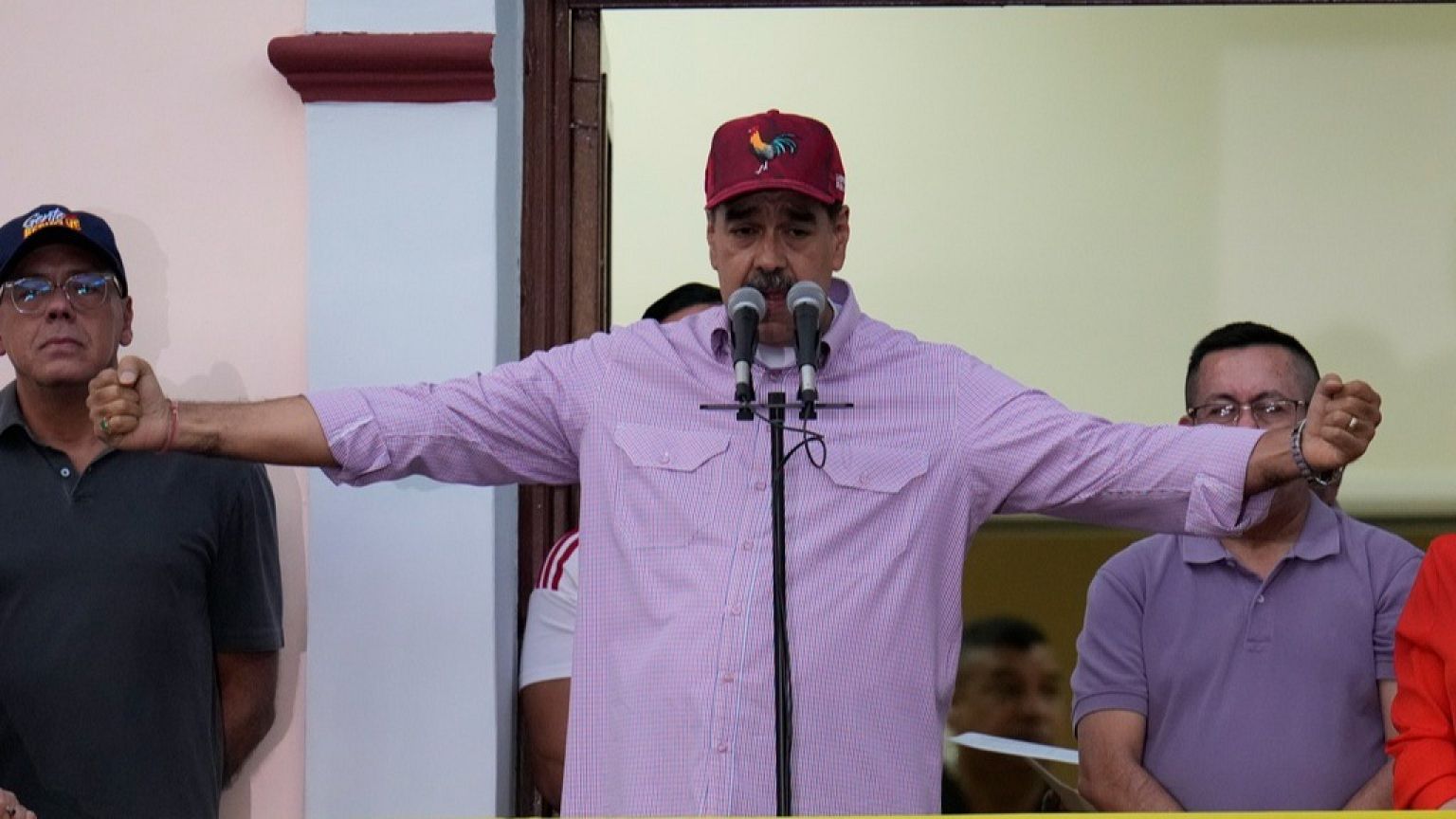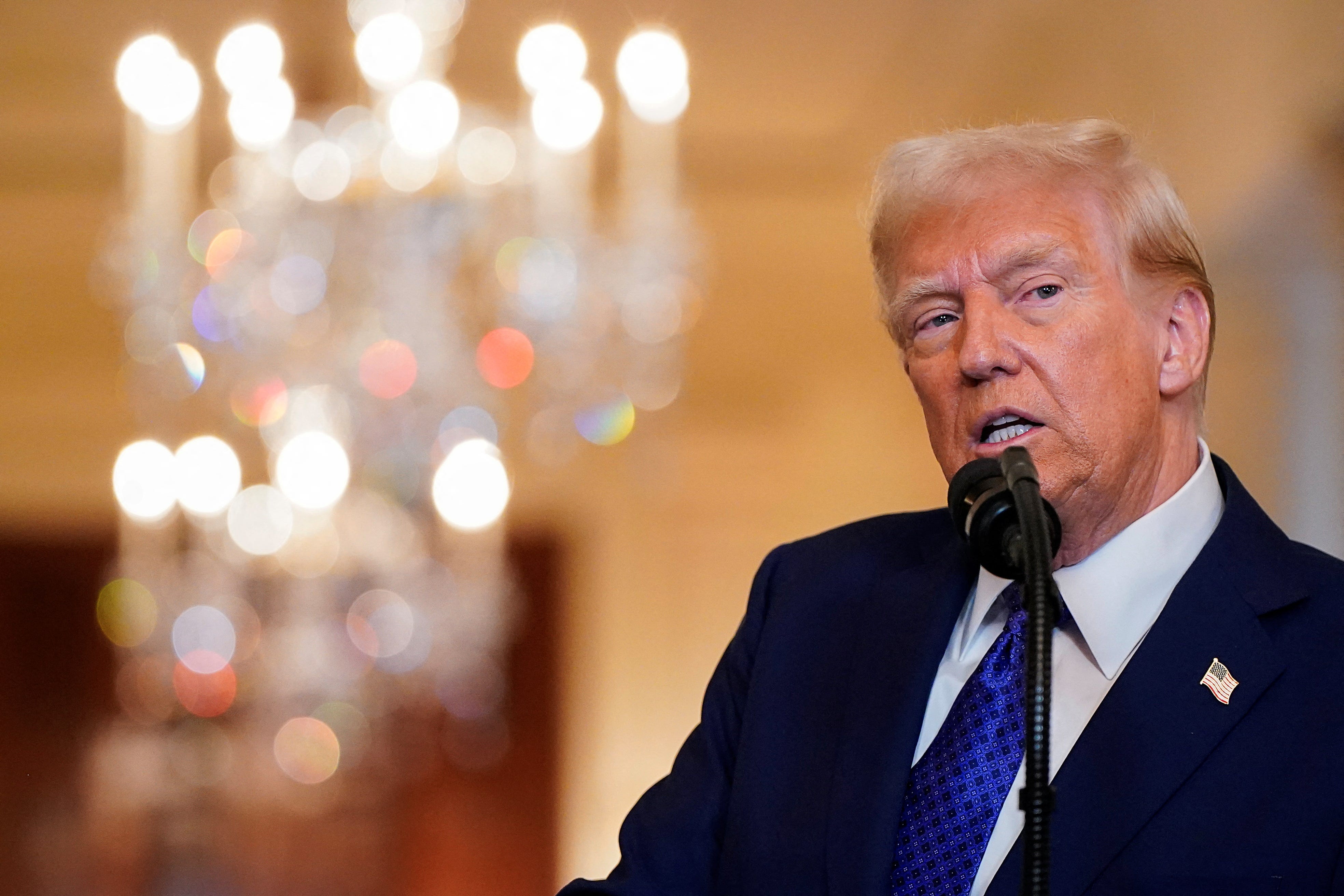Trump Increases Reward to $50 Million for Arrest of Venezuela"s Maduro, Accused of Drug Trafficking
The Trump administration has escalated its efforts to apprehend Venezuelan President Nicolás Maduro by doubling the reward for his arrest to $50 million. The announcement, made on Thursday by Attorney General Pam Bondi, accuses Maduro of being a prominent figure in global narco-trafficking, allegedly collaborating with drug cartels to inundate the United States with fentanyl-laced cocaine. This significant increase in the bounty highlights the U.S. government"s determination to hold Maduro accountable for what it describes as "despicable crimes."
Background & Context
Nicolás Maduro has been the subject of U.S. sanctions and criminal charges for several years, with the State Department labeling him a "narco-terrorist." His administration has faced widespread criticism for human rights abuses and economic mismanagement, leading to a humanitarian crisis in Venezuela that has forced millions to flee the country. The U.S. has positioned itself as a supporter of opposition forces in Venezuela, advocating for democratic reforms and a transition away from Maduro"s regime.
The initial reward of $25 million was set in March 2020 when the U.S. government indicted Maduro on drug trafficking charges. This move came amidst growing concerns over the influx of synthetic opioids like fentanyl into the U.S., which has been linked to a significant rise in overdose deaths. The doubling of the reward reflects the administration"s intensified focus on combating drug-related issues and its broader strategy to destabilize Maduro"s grip on power.
Key Developments
In a video announcement, Attorney General Bondi asserted, "Under President Trump"s leadership, Maduro will not escape justice and he will be held accountable for his despicable crimes." This statement underscores the administration"s commitment to pursuing not only Maduro but also those who support his regime. The U.S. government has provided a range of resources to assist in the search for Maduro, including intelligence-sharing and collaboration with international partners.
The announcement has drawn attention not only to the ongoing crisis in Venezuela but also to the implications of U.S. foreign policy in Latin America. The reward increase may encourage informants and those disillusioned with Maduro"s government to come forward, potentially leading to his arrest. However, the likelihood of Maduro being captured remains uncertain, as he continues to enjoy support from allies, including Russia and China.
\n\n
Image for Trump Increases Reward to $50 Million for Arrest of Venezuela"s Maduro, Accused of Drug Trafficking
Broader Impact
The decision to increase the bounty on Maduro"s head resonates beyond the confines of Venezuela. It reflects broader geopolitical tensions, particularly between the U.S. and nations that support the Maduro regime. Experts have noted that this move could further strain U.S.-Venezuela relations, complicating diplomatic efforts aimed at resolving the ongoing crisis. Additionally, it may impact the dynamics of U.S. relations with other countries in the region, particularly those adopting more authoritarian governance styles.
As previously reported, the situation in Venezuela is not just a domestic issue but a regional concern that affects neighboring countries. The crisis has led to an influx of refugees, putting pressure on countries like Colombia and Brazil. The increased bounty could also play into the hands of Maduro"s critics, providing them with renewed vigor in their fight against his government.
What"s Next
The U.S. government"s next steps will likely involve increasing intelligence operations aimed at locating Maduro and facilitating his arrest. The administration may also ramp up sanctions and diplomatic pressure on nations that harbor or support Maduro. Furthermore, the situation could lead to increased military engagement, albeit indirectly, as the U.S. navigates its approach to countering drug trafficking linked to Venezuelan networks.
As the Trump administration continues to focus on drug-related issues, the implications of this reward extension may also resonate in the context of international drug policy. The U.S. has been grappling with an opioid crisis that has claimed countless lives, and the connection to international drug trafficking networks is becoming increasingly critical in shaping U.S. foreign policy. The situation remains fluid, and developments in the coming weeks and months will be closely monitored by both supporters and opponents of the Maduro regime.
For further insights into international relations and how they shape global trade dynamics, see our recent developments on economic alliances.

Image for Trump Increases Reward to $50 Million for Arrest of Venezuela"s Maduro, Accused of Drug Trafficking


![[Video] Heavy clashes and gunfire reported in Baghdad, Iraq](/_next/image?url=%2Fapi%2Fimage%2Fthumbnails%2Fthumbnail-1768342239932-848qsh-thumbnail.jpg&w=3840&q=75)




![[Video] Gunfire between Iraqi security forces and Sadr militias in Baghdad](/_next/image?url=%2Fapi%2Fimage%2Fthumbnails%2Fthumbnail-1768343508874-4redb-thumbnail.jpg&w=3840&q=75)
